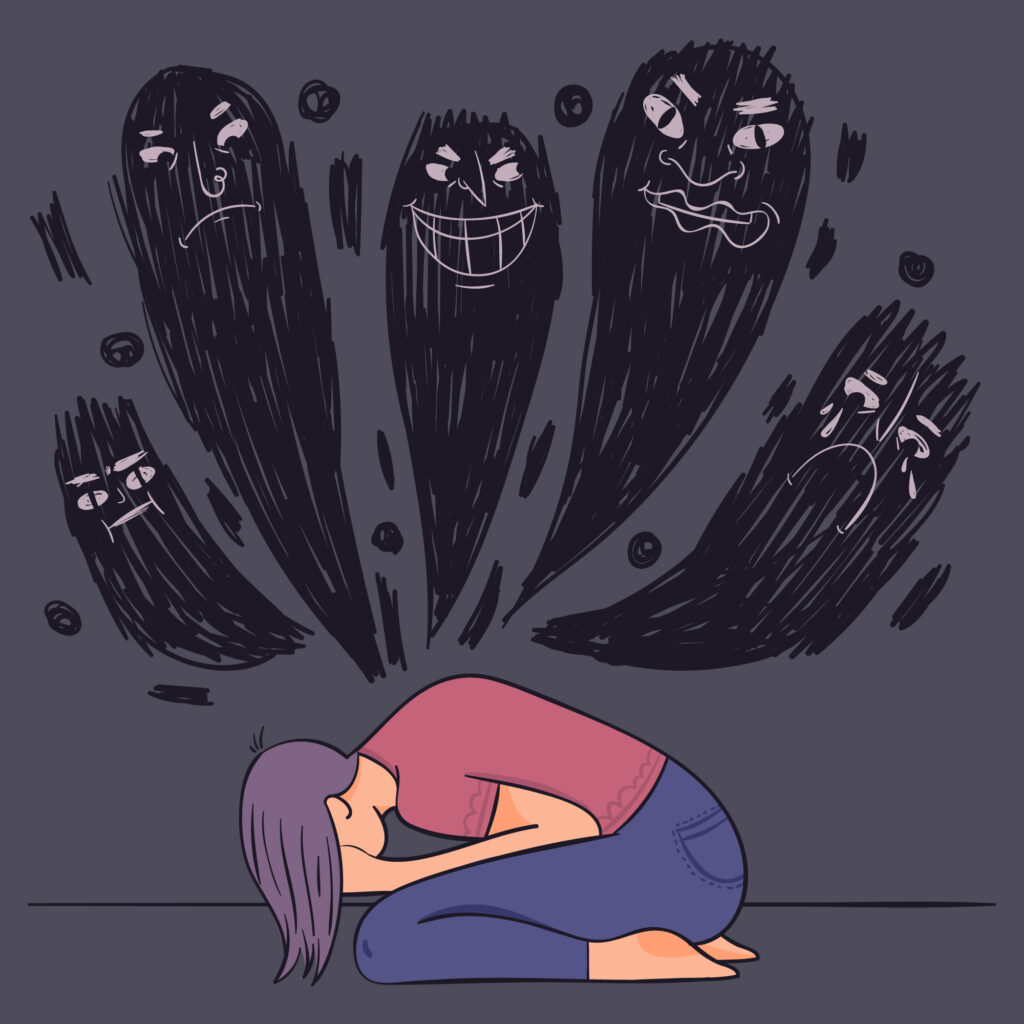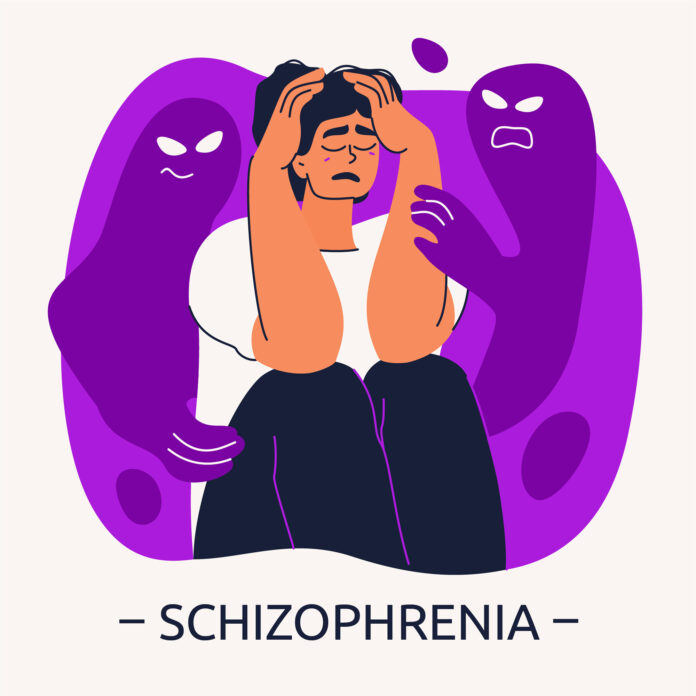Introduction to Schizophrenia
Schizophrenia is one of the confusing psychiatric conditions. At the same time, there is no clear cause and treatment. Research is ongoing. Some symptoms of the disorder can be cured with comprehensive treatment. A key point in the progression of the disorder is referred to as the first episode of psychosis, mostly occurring between ages 14 and 30. While the episode may trigger a psychiatric evaluation that an early-in-life psychotic episode cannot be taken as a merit to diagnosis on its own. According to recent research, made by an associate medical director for the National Alliance on Mental Illness, “Psychosis can be caused by other conditions, including Parkinson’s disease or Bipolar Disorder or by drug use”.
What is Schizophrenia?
It is a severe chronic mental illness and can affect the way a person thinks, feels, and behaves. Patients with schizophrenia may experience delusion, hallucination, depression, memory problems, and sometimes disorganized thoughts and speech.
People can handle these symptoms with the help of a care team that associates with them and delivers effective treatments. These symptoms of schizophrenia have a bad impact on a person’s daily life and one may lose the ability to engage in work, live independently, and maintain interpersonal relationships.
What Are the Symptoms? Schizophrenia is categorized as a severe form of psychosis. That means you may lose the ability to differentiate between the real and what’s thought inside your head. Major symptoms can include:
Schizophrenia is categorized as a severe form of psychosis. That means you may lose the ability to differentiate between the real and what’s thought inside your head. Major symptoms can include:
- Hallucinations: You may see or hear things that don’t exist
- Delusions: You start to believe that aren’t based in reality
- Intermingle thoughts based on hallucinations or delusions
- Speaking problems
- Uncertain behavior behavior
- Lose your goals in life
- Trouble in paying attention
- Loss of interest in daily tasks or activities
- Poor hygiene
- Lose interest in friends and family, want to stay lonely
Often, you forget the things and matters, and your thoughts have become misleading or confused. In some cases, friends, loved ones, or doctors may point it out and try to lead you toward proper treatment.
Overview of Phases
In this article, we are going to discuss the stages of schizophrenia, their causes, symptoms, diagnosis, and treatment options.
Prodromal Stage
The first stage of schizophrenia occurs before noticeable psychotic symptoms appear. At the onset of this stage, a person experiences behavioral and cognitive changes that may progress to psychosis. The initial phase of schizophrenia generally involves nonspecific symptoms that also occur in anxiety or depression. Symptoms of the first phase of schizophrenia include:
Symptoms of the first phase of schizophrenia include:
- Anxiety
- Social disconnection
- Lack of self-confidence
- Irritability
- Lose concentration
- Can’t follow a normal routine
- Sleep disorder
- Bad personal hygiene
- Confused behavior
- Mild hallucination
According to a review made in 2023, up to 83% of schizophrenia patients experience the prodromal phase before they develop the real characteristic symptoms of schizophrenia. Therefore it is much difficult to identify the individuals in the prodromal phase. This is considered a challenging phase.
Prodromal symptoms usually occur way before a person starts to develop the active stage symptoms. Professor in the Department of Psychiatry & Genomic Sciences at the School of Medicine in New York City describes “Many persons have social, emotional, and cognitive symptoms before psychosis emerges. This is known as a prodrome.” It means the continuous changes in social functioning with adverse effects on mood and emotions happen in this phase.
One key difference between prodromal and active symptoms is that Prodromal symptoms are not fixed. In the prodromal phase being suspicious or hearing messages meant for them. When the person’s concepts are fixed and they are not true despite reasonable evidence, their condition has likely progressed beyond the prodromal.
Some early signs that are overlooked sometimes in real time are considered part of the first phase. Often, family and friends don’t notice subtle behaviors when they start to occur, but they identify them when they look back after the occurrence of an episode of psychosis. For example, mild cognitive disorganization and suspiciousness are less obvious symptoms in the prodromal.
Symptoms such as a decline in grooming or a drop in academic results may be attributed to anxiety, depression or other issues rather than early psychosis.
Active Stage
The second phase of schizophrenia is named as active or acute phase, because people in this phase of schizophrenia exhibit symptoms of psychosis, including hallucinations, delusions, and paranoia. Active schizophrenia exhibits prominent symptoms such as:
- Hallucinations linked with seeing, hearing, smelling, or feeling things that do not exist.
- Delusions like false notions or ideas that a person believes even when the proof of their absence is clear
- Confused thoughts
- Disordered speech
- Excessive movement
- Wandering
- Mumbling
- Laughing to oneself
- Apathy of emotions
During the second phase, the symptoms of schizophrenia become more harsh and more prominent. The active phase is classified as the full development of schizophrenia, and symptoms of psychosis are stronger than the prodromal phase. Episodes of acute psychosis become constant. During the active phase of schizophrenia, the symptoms occur in three forms:
Positive Symptoms: A positive symptom consists of delusions or hallucinations that cause changes in thoughts or perceptions. Visual, auditory, or tactile hallucinations are the main symptoms during the active phase of schizophrenia. The delusions during this phase involve hearing voices, seeing people or things, or feeling movements on the skin that are not present.
Research says “Delusions are fixed, false beliefs based on illogical thinking and not based on actual events.”
Disorganized Symptoms: These are confusing symptoms and can’t be identified easily. They include:
- Unclear thoughts: This can lead to cognitive decline, like difficulty in concentration, weak memory, and problems with focus.
- Uncontrolled speech: This is recognized by jumbled sentences that often jump between words or sentences without a clear meaning or order.
- Uncertain behaviors and imbalanced movements: They can include untold agitation and harsh behaviors, disorganization, random movements, and difficulty in doing routine activities.
Negative Symptoms: The absence of normal interactions and functioning is referred to as a negative symptom of schizophrenia. Negative symptoms are:
- Speech difficulty
- Loss of normal expression of feelings
- Lack of interest in social interaction
- Decreased involvement in daily activities
The bizarre symptoms and behaviors make this phase more alarming for family members and friends therefore getting medical attention for the treatment of the schizophrenia phase second is most important. It will save the person and his relations from any danger.
Residual Schizophrenia The third phase of schizophrenia named residual schizophrenia is no longer recognized for diagnosing purposes. However, it is still advantageous for describing the characteristic symptoms of schizophrenia.
The third phase of schizophrenia named residual schizophrenia is no longer recognized for diagnosing purposes. However, it is still advantageous for describing the characteristic symptoms of schizophrenia.
In this phase, a person exhibits less severe symptoms than those seen in the active stage. There are no positive symptoms linked with this phase i.e. this phase has no hallucination or delusion issues. The residual stage closely resembles the prodromal stage. People are often triggered by negative characteristic symptoms like a lack of motivation, low energy, or depressed mood.
Symptoms of residual schizophrenia may be classified as:
- Social disconnection
- Difficulty in concentration
- Difficulty in participating in activities
- Reduced facial expressions
- Flat voice
- Disinterest in routine matters
Factors Influencing Phases
Being a multidimensional condition schizophrenia arises from several variables. Research has discovered the possible causes of schizophrenia. However, the reasons for indulging in phases of schizophrenia are still unclear. Different factors including genetic, physiological, and environmental factors become a cause of alteration to the rain’s chemistry and structure. These alterations may cause schizophrenia.
Factors associated with schizophrenia are:
- Genetics: According to the NAMI, people who belong to a family with a history of schizophrenia are five times more likely to develop the condition.
- Environment: The National Institute of Mental Health (NIMH) has declared that environment is another factor that can impact the risk of schizophrenia and other mental disorders. Exposure to viruses also triggers the development of schizophrenia. Misuse of hazardous substances, trauma, and lifestyle choices may also have an impact.
- Structure of Brain: Changes in brain structure can result in abnormal interactions between the brain’s neurons and hormones such as dopamine. These changes may contribute to the psychotic progression of schizophrenia.
- Substance Use: Use of specific substances, especially during adolescence, may enhance the risk of developing schizophrenia. The Institute of Mental Health has suggested that the genetic factors associated with schizophrenia may also contribute to the brain changes that are linked with addiction.
Diagnosis and Treatment Across Phases
Mental health professionals and psychiatrists often diagnose schizophrenia during the active stage, as the symptoms are most prominent at this phase. To diagnose schizophrenia the following criteria must be understood.
According to recent advanced research, a schizophrenia diagnosis must have the following elements. A person experiences at least two of the following symptoms for a 25- 30 day period:
- Hallucinations
- Uncontrolled speech
- Catatonic behavior
- Reduced emotional expression or apathy
 A person with these symptoms may lose the ability to function properly, affecting their professional or academic performance, interpersonal relations, or self-care. Poor functioning lasts for at least 5 to 6 months. During this period, a person exhibits symptoms for at least 2 months. The active phase symptoms occur independently as depressive episodes. Symptoms did not exhibit due to another medical condition or substance abuse.
A person with these symptoms may lose the ability to function properly, affecting their professional or academic performance, interpersonal relations, or self-care. Poor functioning lasts for at least 5 to 6 months. During this period, a person exhibits symptoms for at least 2 months. The active phase symptoms occur independently as depressive episodes. Symptoms did not exhibit due to another medical condition or substance abuse.
Age of Onset for Schizophrenia
A person may have symptoms of schizophrenia at any age, but the average age of onset varies between males and females.
According to the Research Institute of the USA, the earlier symptoms of schizophrenia for males generally appear between the late teens to early 20 and in females the late 20s to early 30s. A case reported in 2020, states that schizophrenia can occur in children less than 12 years old, though this appears to be rare.
Treatment Approaches
Schizophrenia is a lifelong condition but it is treatable. Timely and prompt treatment can manage symptoms and stop relapses. Here some treatment techniques are discussed to help the patients.
- Anti-psychotic Drugs: These drugs are used as daily oral doses or monthly injections. Anti-psychotic drugs are prescribed to manage the severe symptoms of schizophrenia and people who use them experience less intense and less frequent psychotic symptoms. On the other side, these anti-psychotic drugs can have adverse effects, including weight gain and drowsiness.
- Cognitive Behavioral Therapy (CBT): It helps people develop useful coping abilities and skills for working through disruptive thoughts.
- Psycho-dynamic Therapy: It involves conversations between a psychologist and a patient. Through conversation, the psychiatrist attempts to uncover emotional experiences and unconscious processes that disturb the patient’s mental state.
- Acceptance and Commitment Therapy (ACT): This is a type of behavioral therapy that prepares people to accept, rather than challenge, their deep feelings. This also focuses on personal goals and values to improve one’s overall quality of life. Moreover, ACT teaches mindfulness skills that can help a person concentrate on the present moment instead of being consumed by negative thoughts.
- Family Therapy: This psychotherapy involves families and people with schizophrenia and other mental health conditions. It concentrates on education and emotional processing.
Outlook for Patients
The first phase of this disorder may last around two and a half years. However, it’s not diagnosed until a person is in the active phase. If the active phase is not treated properly, symptoms can last for months or even years. Relapses may be more frequent, as well.
In short, a person diagnosed with schizophrenia will be managing symptoms for the majority of life.
Conclusion
Schizophrenia is subdivided into three phases— prodromal, active, and residual.
The prodromal stage is identified as nonspecific symptoms, including, lack of motivation, social isolation, and difficulty concentrating. But these symptoms are not always obvious. Therefore, diagnosing schizophrenia at this stage is extremely difficult.
Active schizophrenia shows noticeable psychotic symptoms, like hallucinations and delusions. Medical attention is required at this phase. Prompt treatment and diagnosis can help reduce the harshness and frequency of psychotic episodes.
The residual phase is no longer acknowledged, but it helps explain the progression of the disorder. In this phase, hallucinations, delusions, and disorganized thoughts are mild. A person may experience symptoms from the prodromal stage.
This final phase still causes symptoms. But these aren’t as disordered as the active phase.
Treatment is the way to manage symptoms and prevent relapses. As schizophrenia is a continuous disorder that affects one’s brain and body throughout life, thus treatment is also necessary throughout life.







